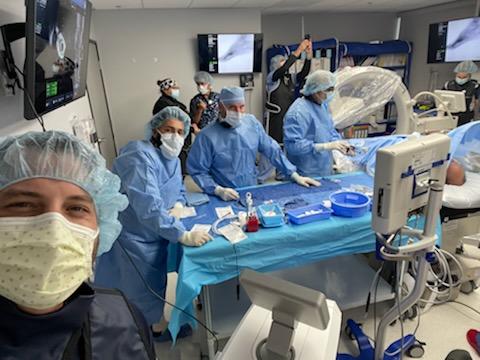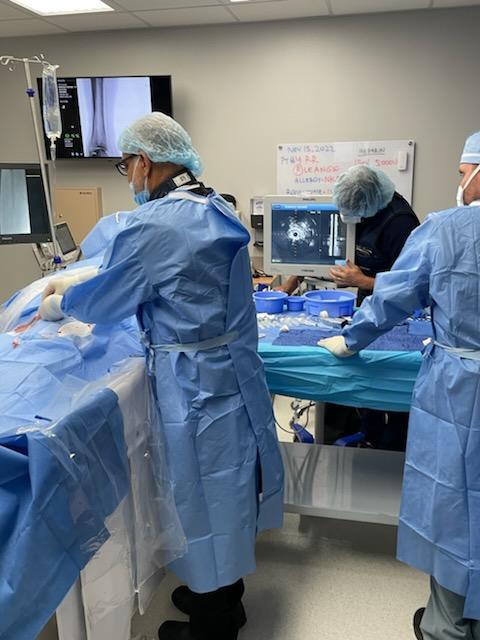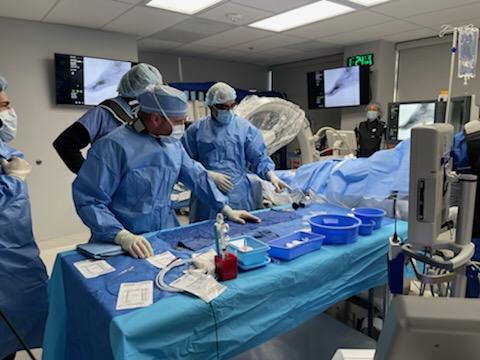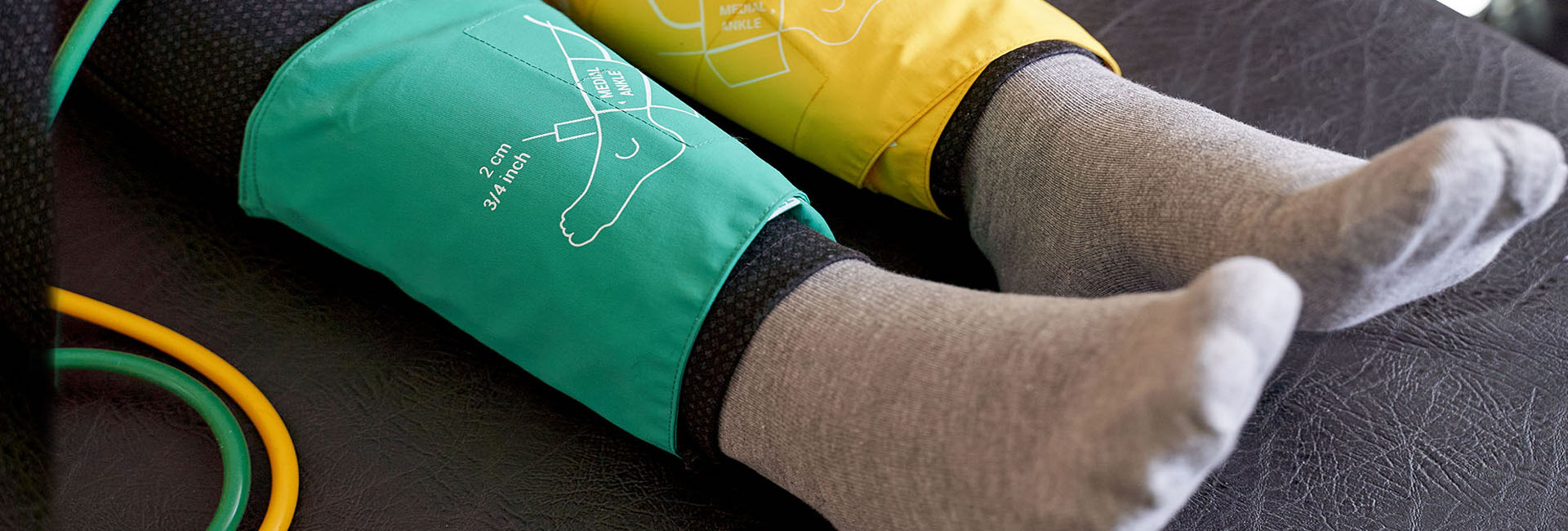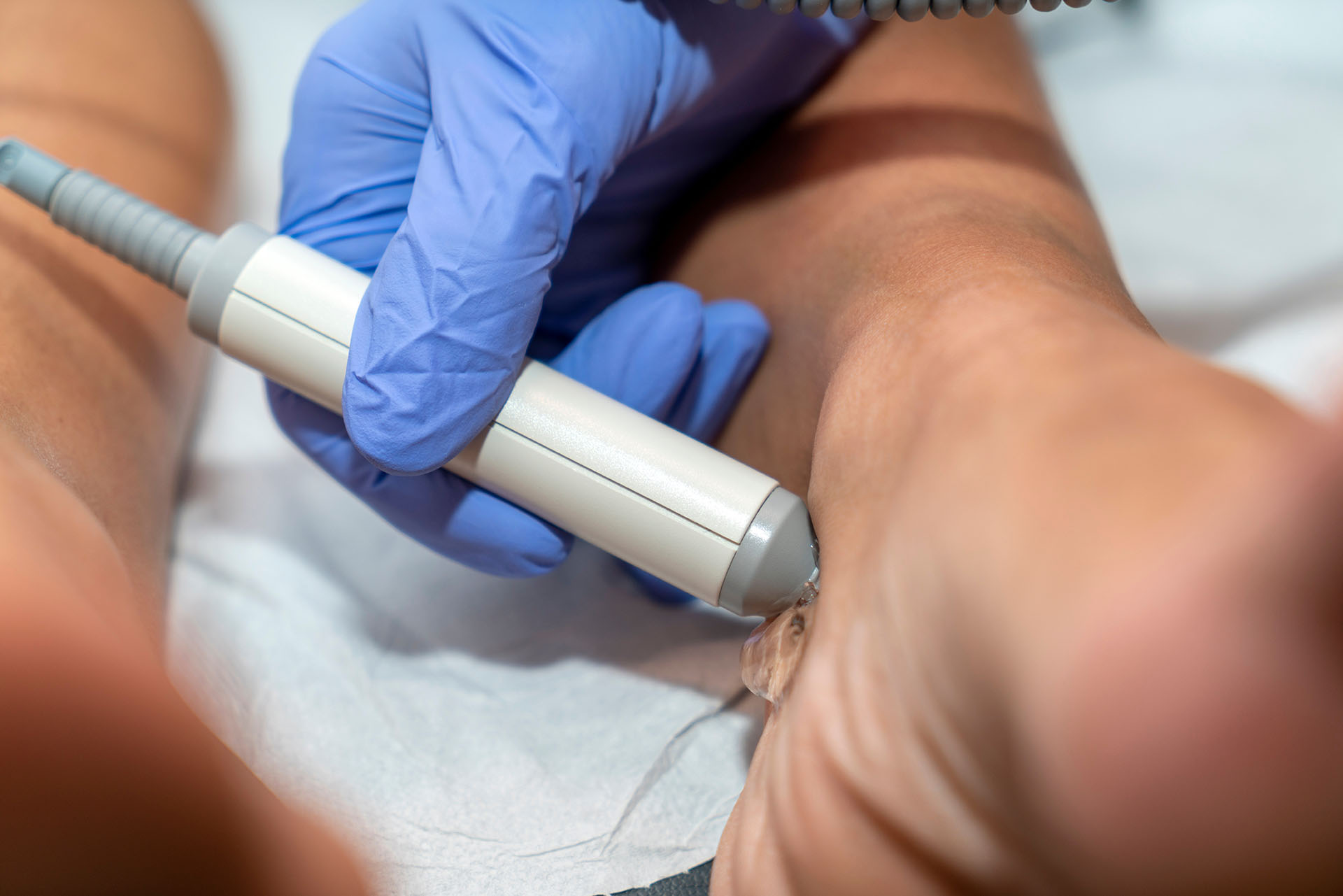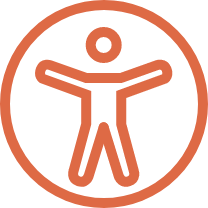Peripheral Artery Disease
Peripheral Artery Disease (PAD) is the disease of the arteries. To understand the difference between arteries and veins, the arteries are blood vessels that carry blood from the heart to different parts of the body, such as the organs and muscles. Veins are blood vessels that carry blood back from the organs and muscles to the heart. When we talk about PAD, we are referring to arteries that carry blood to the muscles of the limbs, such as the arms and legs, which are periphery to the body.
Therefore, PAD refers to Peripheral (Limb) Artery (Artery) Disease. The PAD arteries in the legs are more commonly affected than the arms. Over time, the arteries that supply blood flow to the muscles of the leg get narrower and narrower because of the buildup of plaque (typically made up of cholesterol, fat, and calcium).
We commonly see this in patients with:
- High cholesterol due to cholesterol and fatty plaque build up
- Hypertension which is when high blood pressure emits high stress on the wall of the arteries and makes them hard and stiff to compensate the high pressure. Over time it forms calcium, similar to the calcium found in the bones.
- Smoking can cause damage to the inner lining of the arteries due to the toxic chemicals in the cigarette smoke which leads to plaque buildup and narrowing of the arteries typically affecting the bigger arteries like the aorta, Iliac arteries (pelvic arteries) and Femoral arteries (thigh arteries).
- Diabetes causes calcium to build up in the arteries, specifically smaller arteries such as arteries of the legs, feet and toes.
- Renal failure or patient on dialysis build up calcium in the arteries like diabetes
- Older age typically greater than 65, can cause calcium buildup in the arteries like in diabetes and renal failure patients.
The narrowing of the arteries that supply the muscles of the legs leads to reduced blood flow to the muscles.
As we use our leg muscles to perform increasing activities such as walking, going up the stairs, or running, the muscles in the legs require more and more blood flow. With PAD leading to the narrowing of the blood vessels, it does not allow the blood to travel fast enough through the arteries to keep up with the activity. This typically leads to cramping and tightening of the muscles in the buttocks, thigh, and calf – requiring us to pause or stop the activity. Pausing or stopping allows time for the blood to reach the muscles before resuming activity. This is classically known as claudication.
PAD can progress over time and if left untreated, can affect simple day-to-day activities of living – i.e. walking in and around the house, walking to the mailbox, walking from the parking lot to the grocery store, climbing stairs in the house. In severe cases, the leg muscles become weak and can lead to problems with balance and patients might experience falls, thus requiring a cane or walker to walk, or they even become wheelchair bound.
In the most severe form of PAD, patients will experience cramping even at rest without any activity and will constantly move their legs while sitting to improve blood flow, such as in restless leg syndrome, without knowing they are doing so. Other signs include muscle wasting, hair loss on the legs and feet, as well as skin and nail changes.
In cases with diabetes, renal failure, and older age groups, patients may have claudication. These patients are more likely to experience cold feet, neuropathy, numbness, tingling, pain, and cramps in the toes and feet, as it typically involves narrowing or blockages of the smaller blood vessels of the legs, feet, and toes.
These symptoms are experienced more commonly during the night when sleeping or when lying flat. During the day, most people sit or stand, which allows gravity to bring the blood down from the heart to the legs, feet, and toes. However, at night, lying flat in bed eliminates the effect of gravity because the heart and feet are at the same level. Often, these patients wake up at night with cold feet, numbness, tingling, or cramps in their feet and toes, and will hang their feet off the bed, stand, or walk around allowing the gravity to bring the blood to these areas. In severe cases, some will have to sleep in a chair at night to allow gravity to bring the blood to the feet and toes. This is a severe form of PAD called Critical Limb Ischemia (CLI), which requires immediate medical attention.
In CLI, patients sometimes can develop open sores or wounds in the legs, feet, or toes, which rarely heal. If they happen to heal, they usually reappear again and again because of the severe narrowing or complete blockages of the arteries. This will lead to loss of skin perfusion and skin breakdown, which results in the development of open sores and wounds. Patients in this condition must get immediate medical attention.
